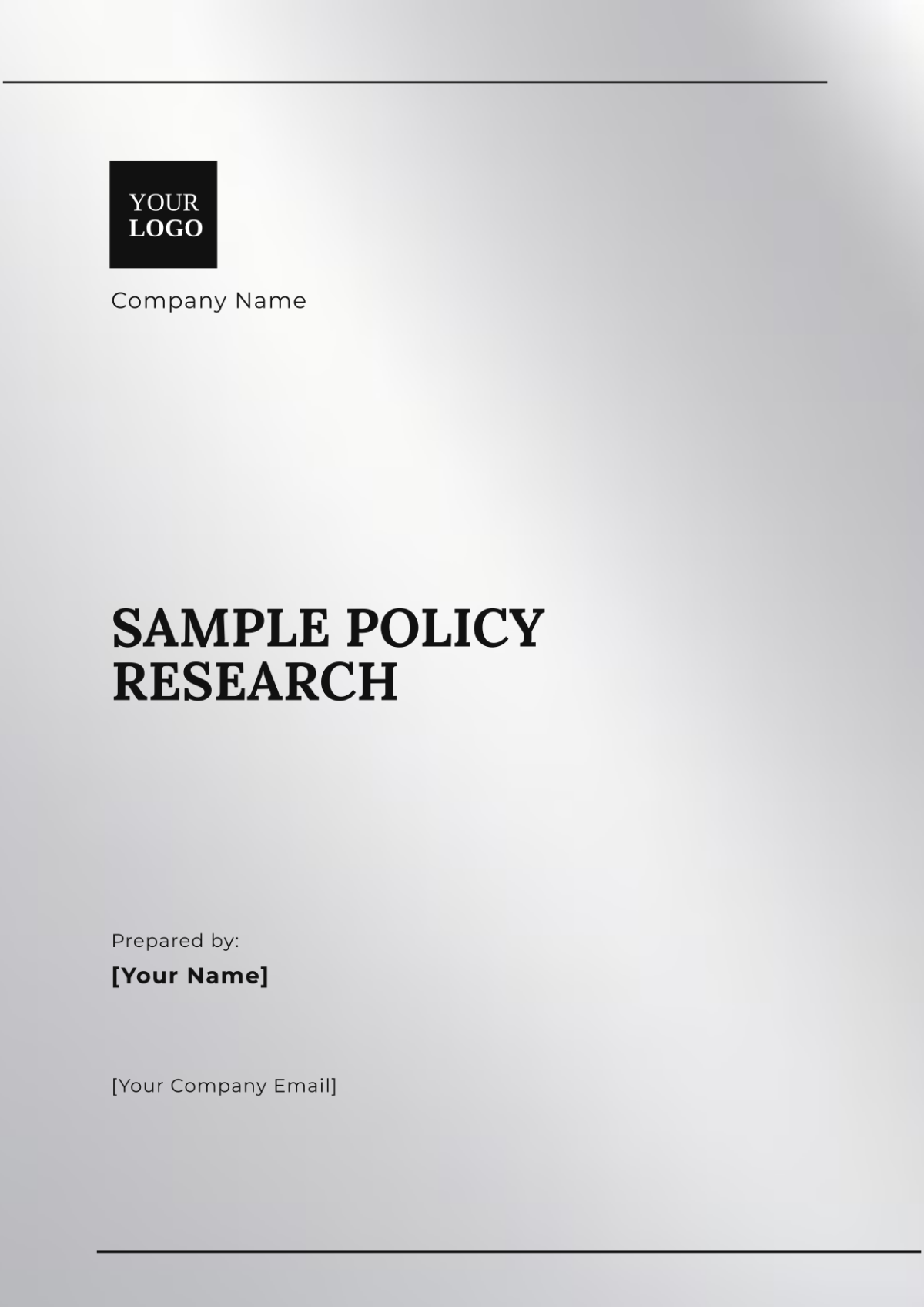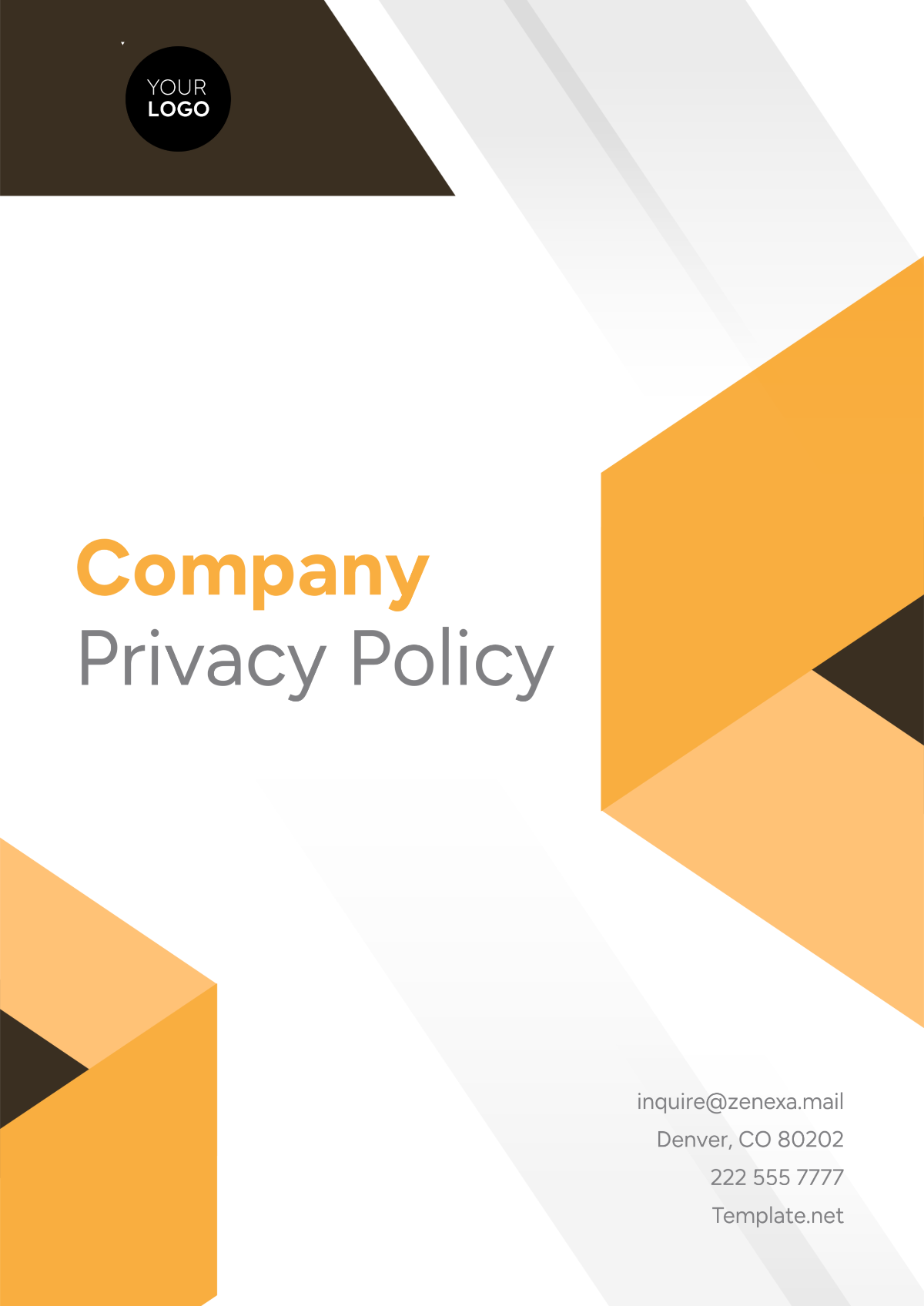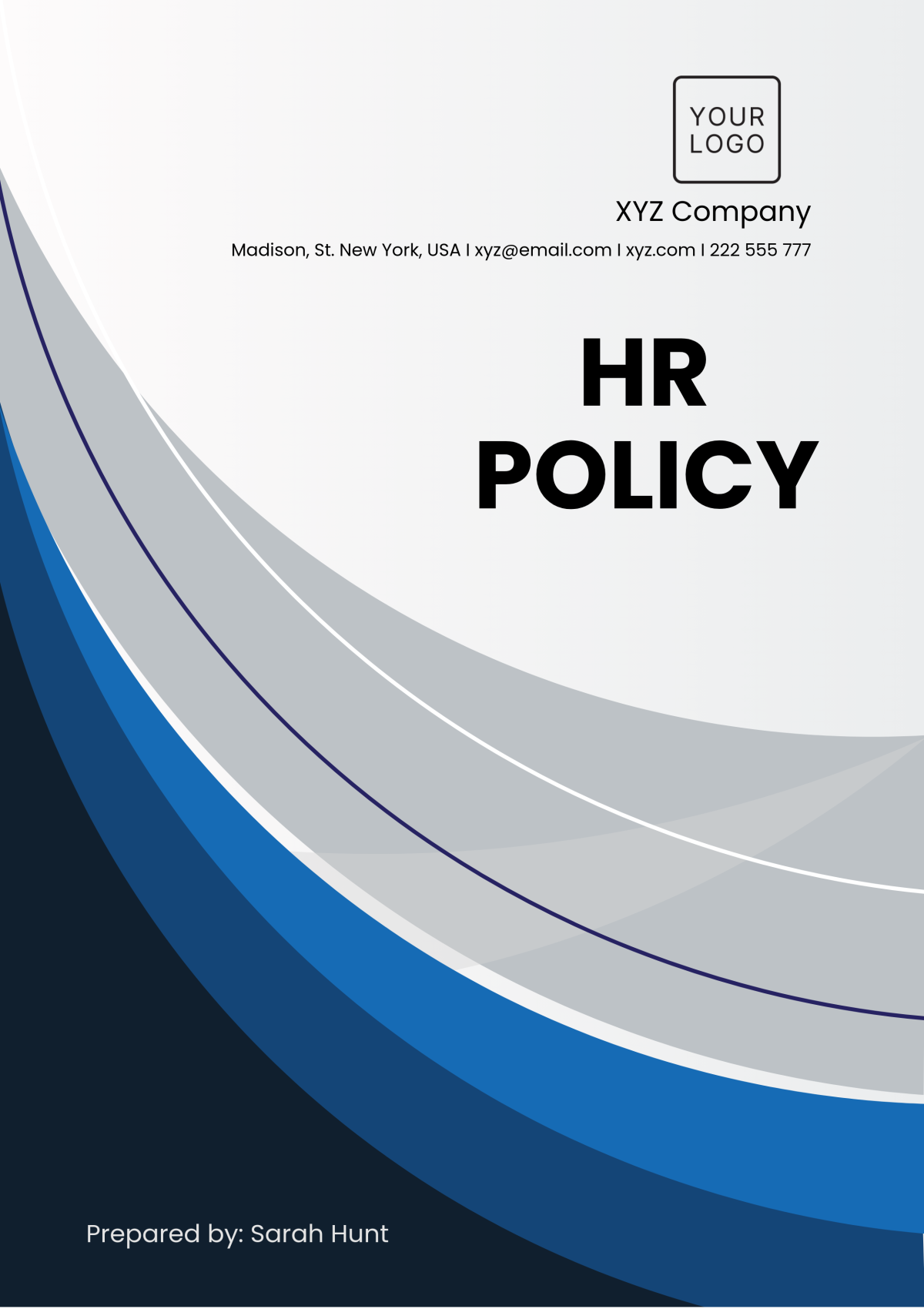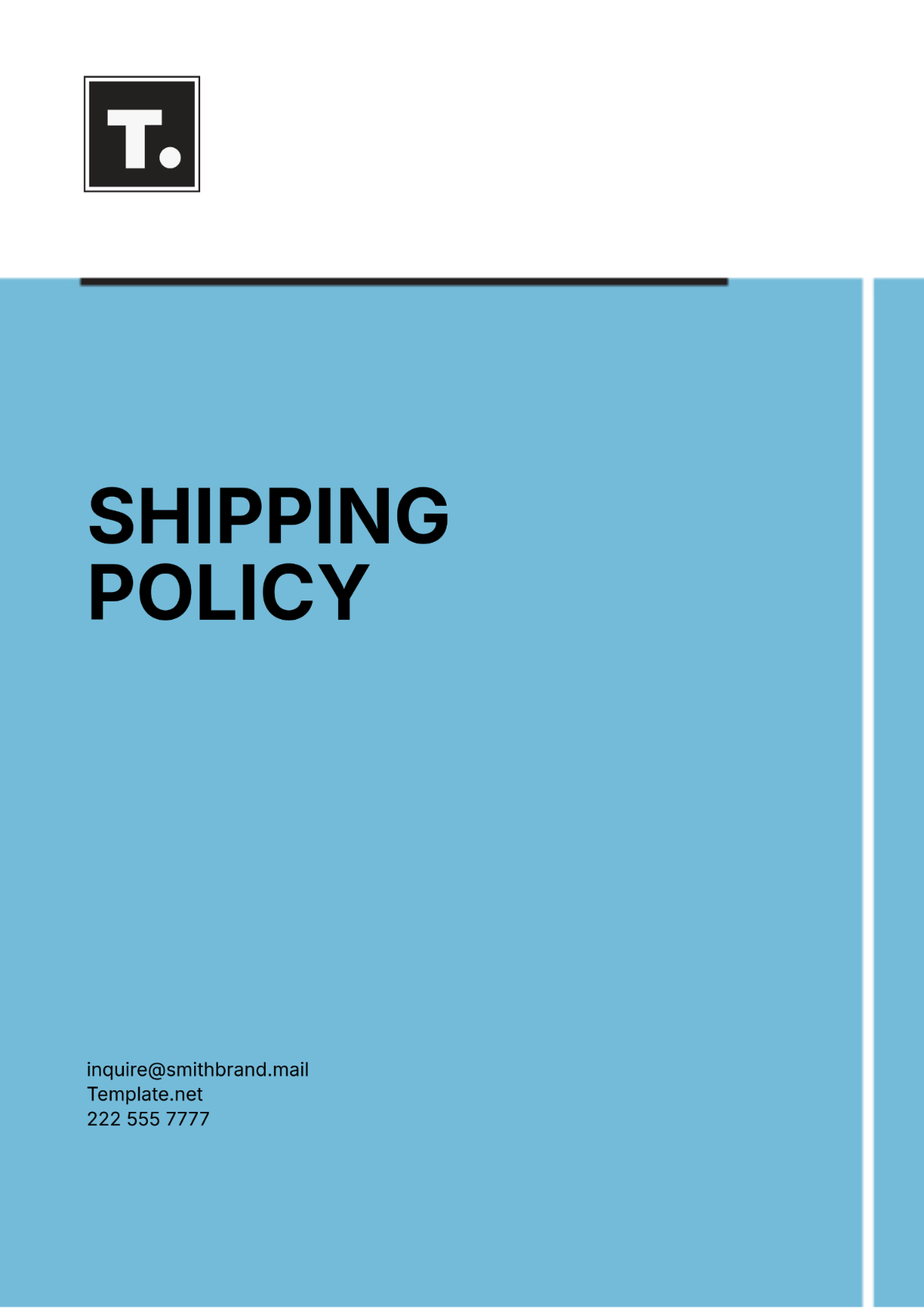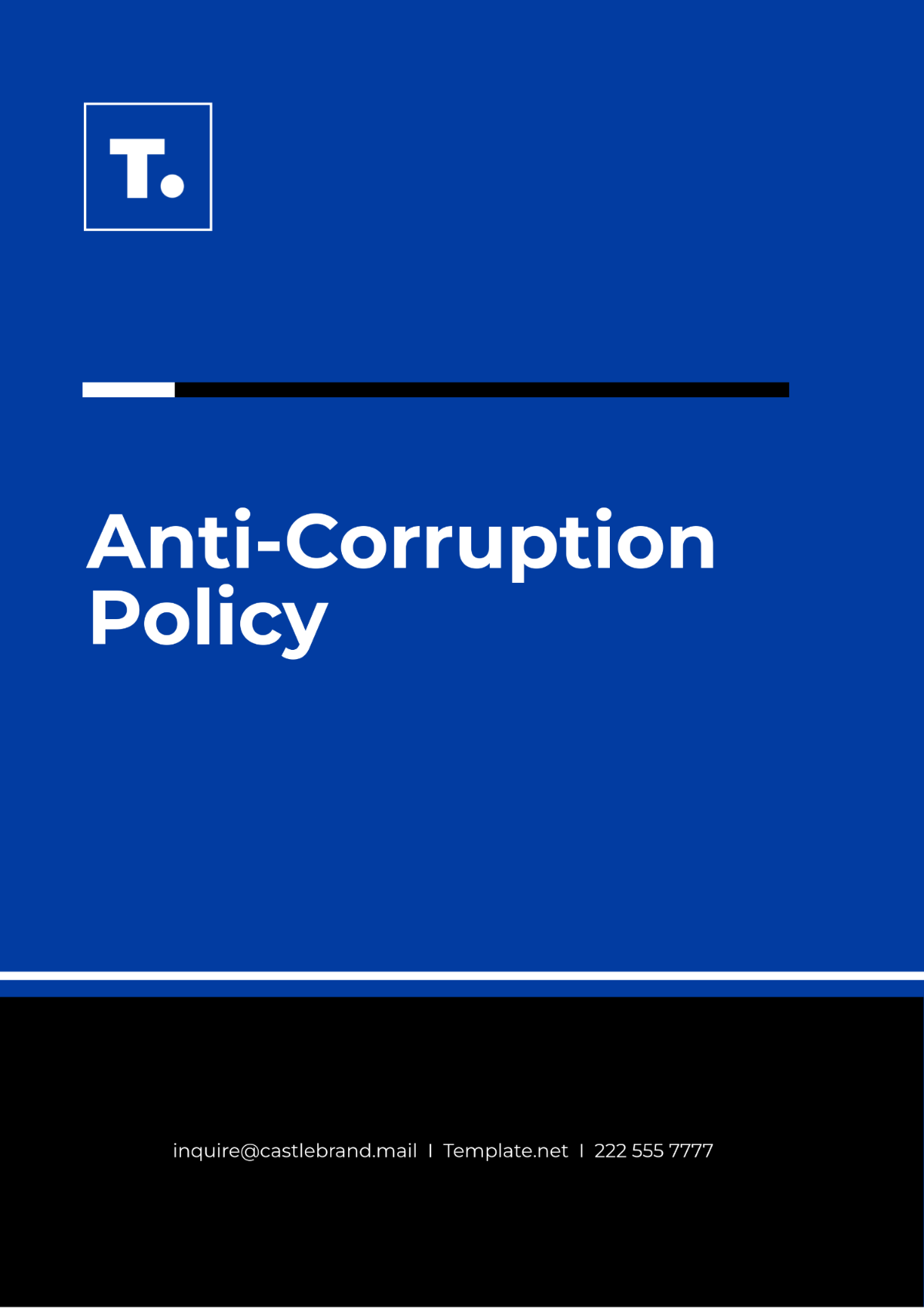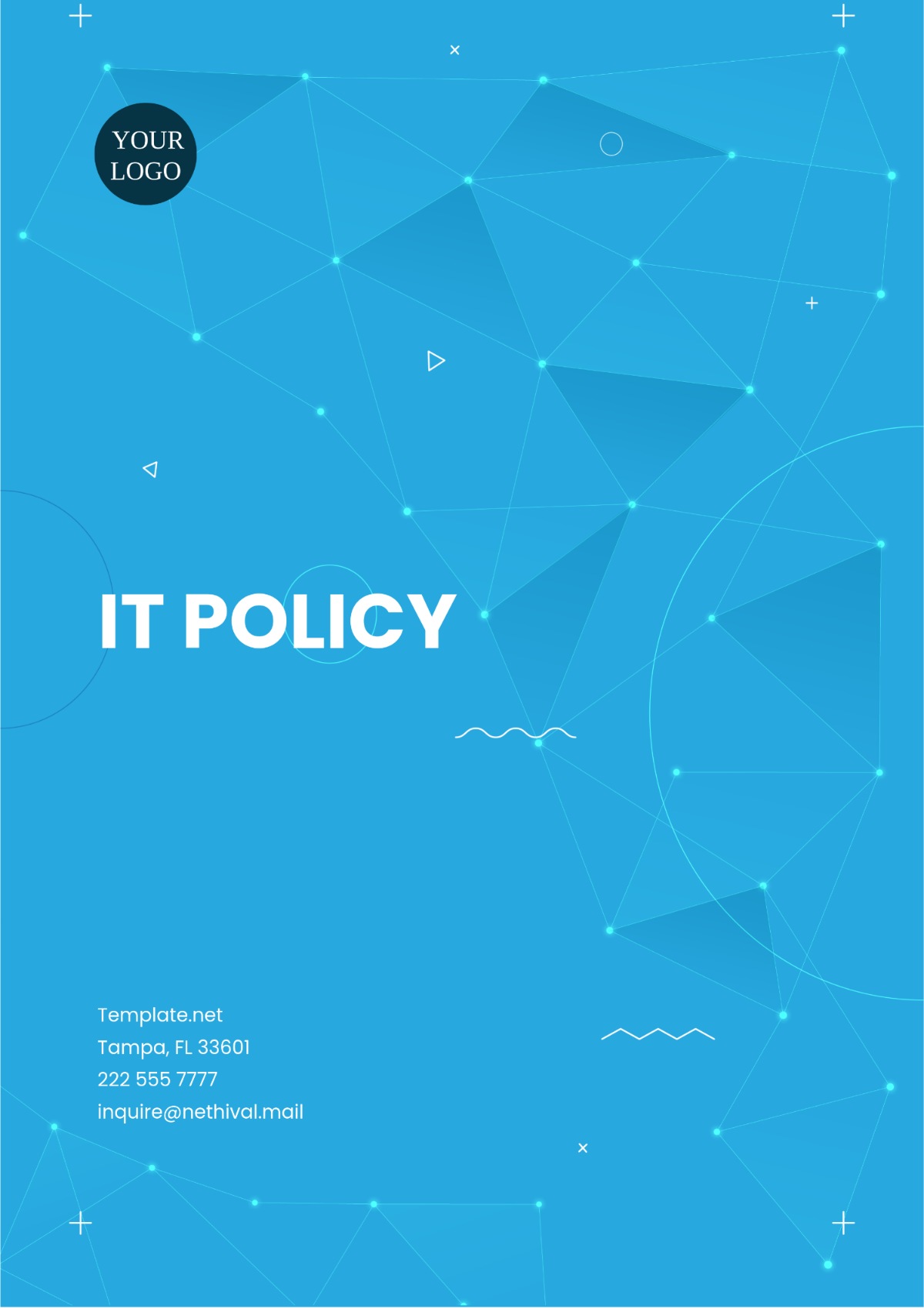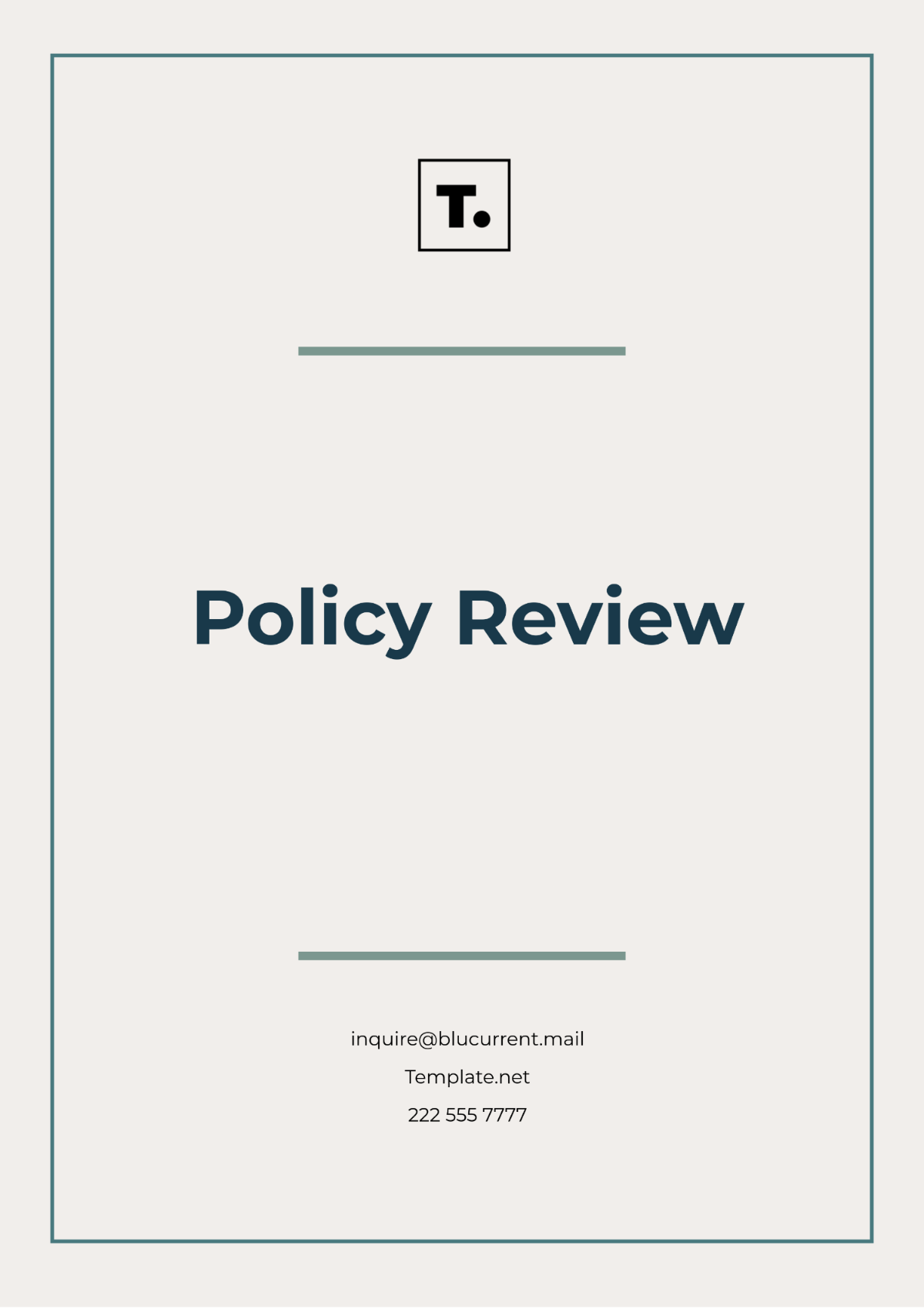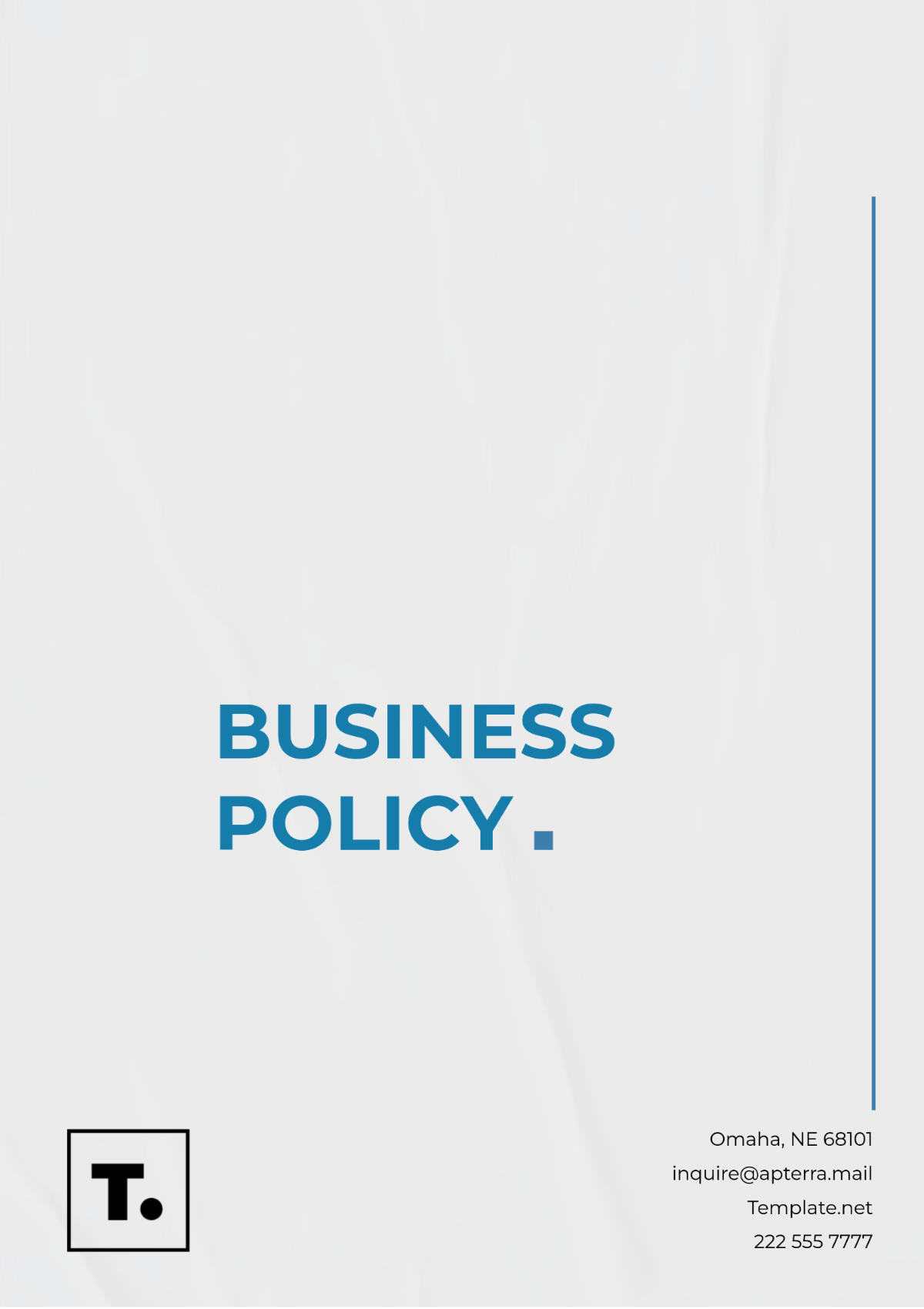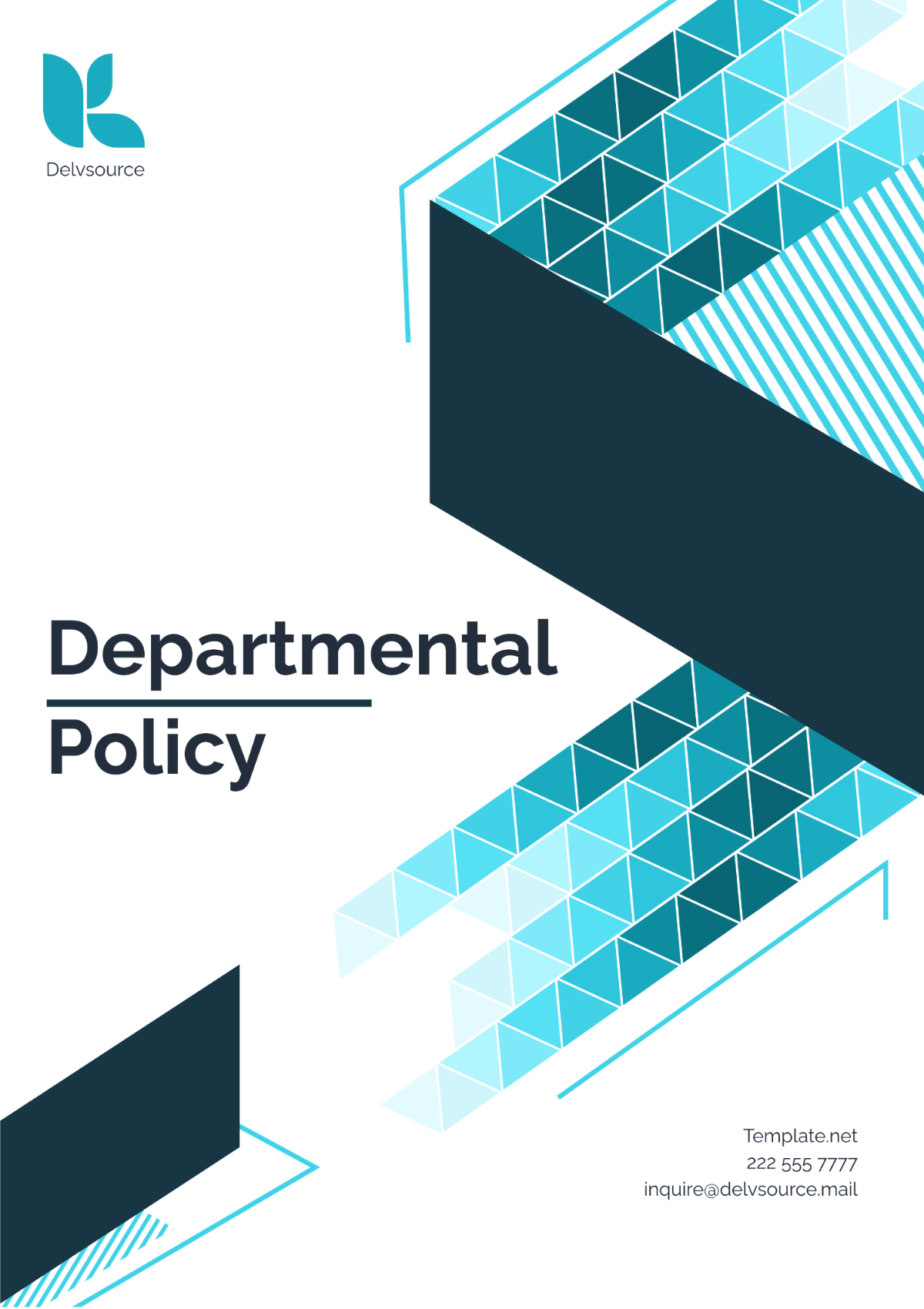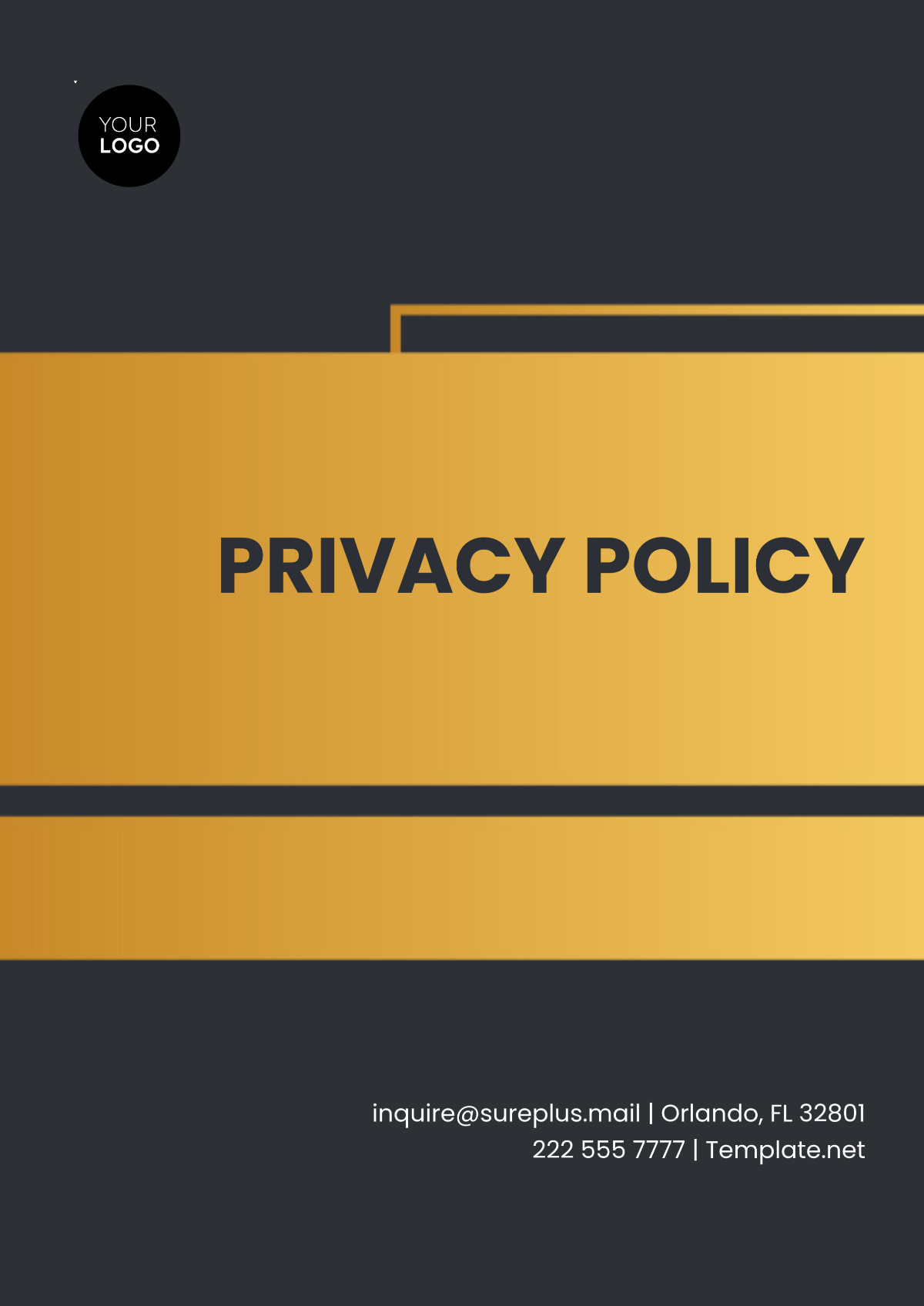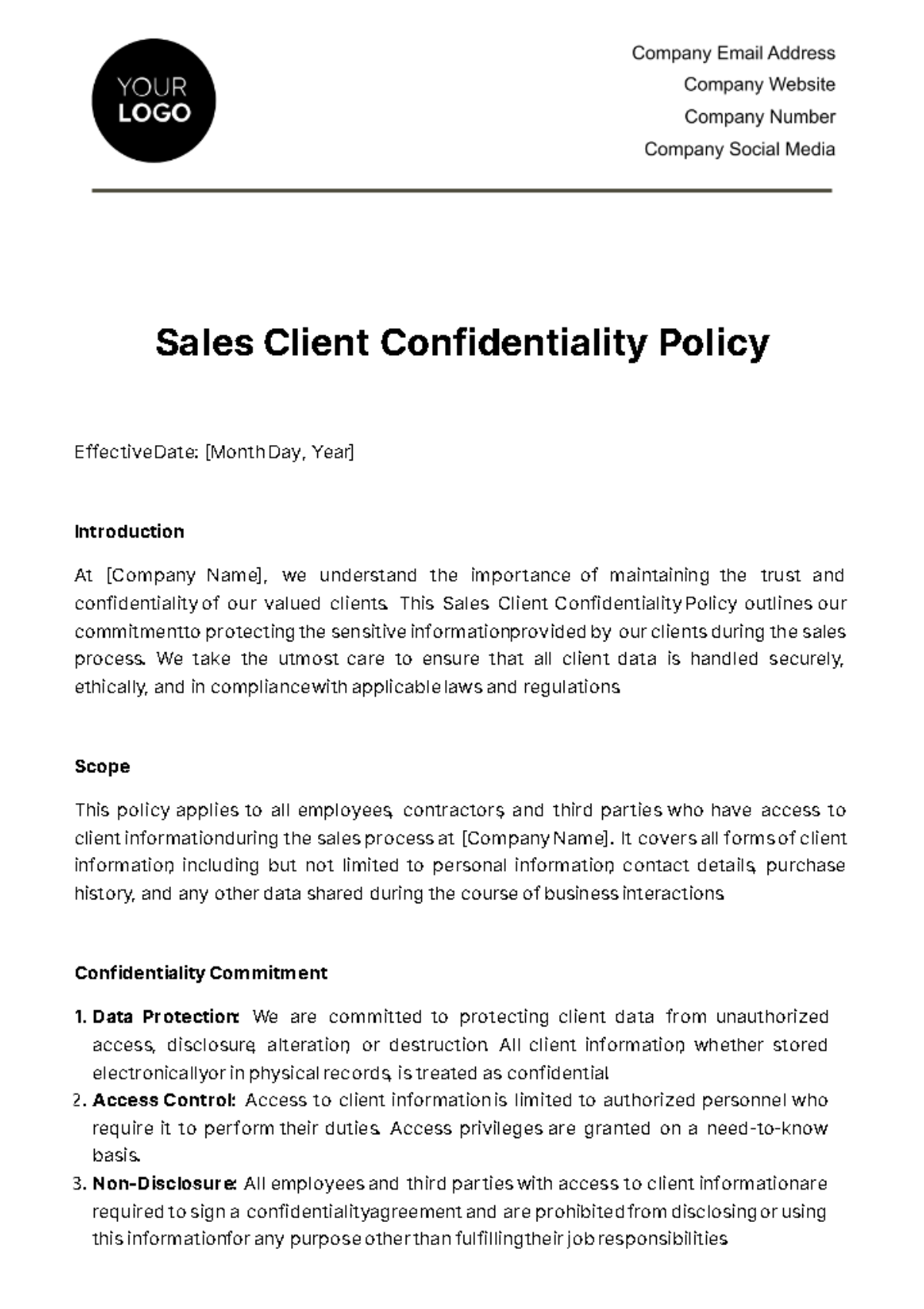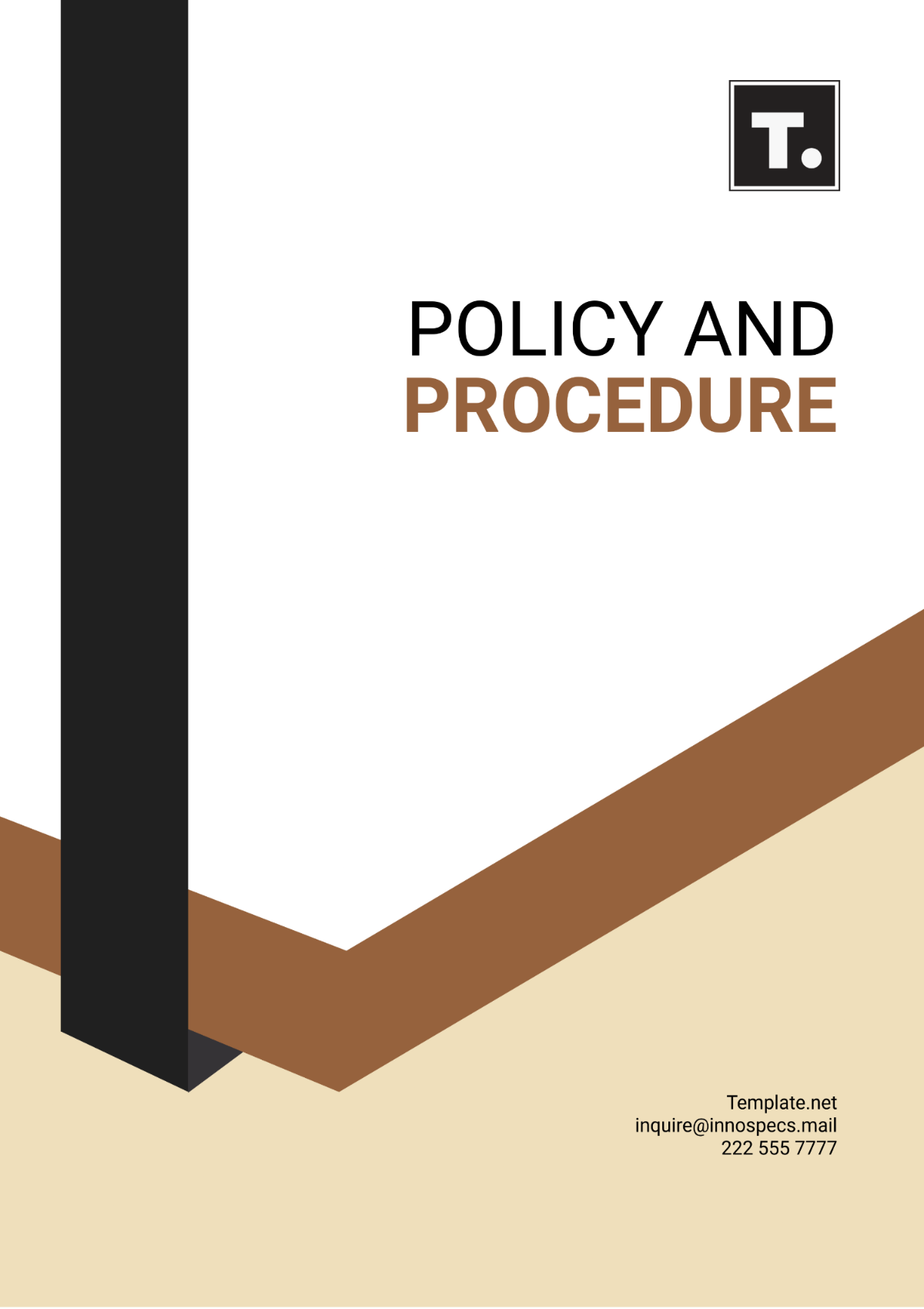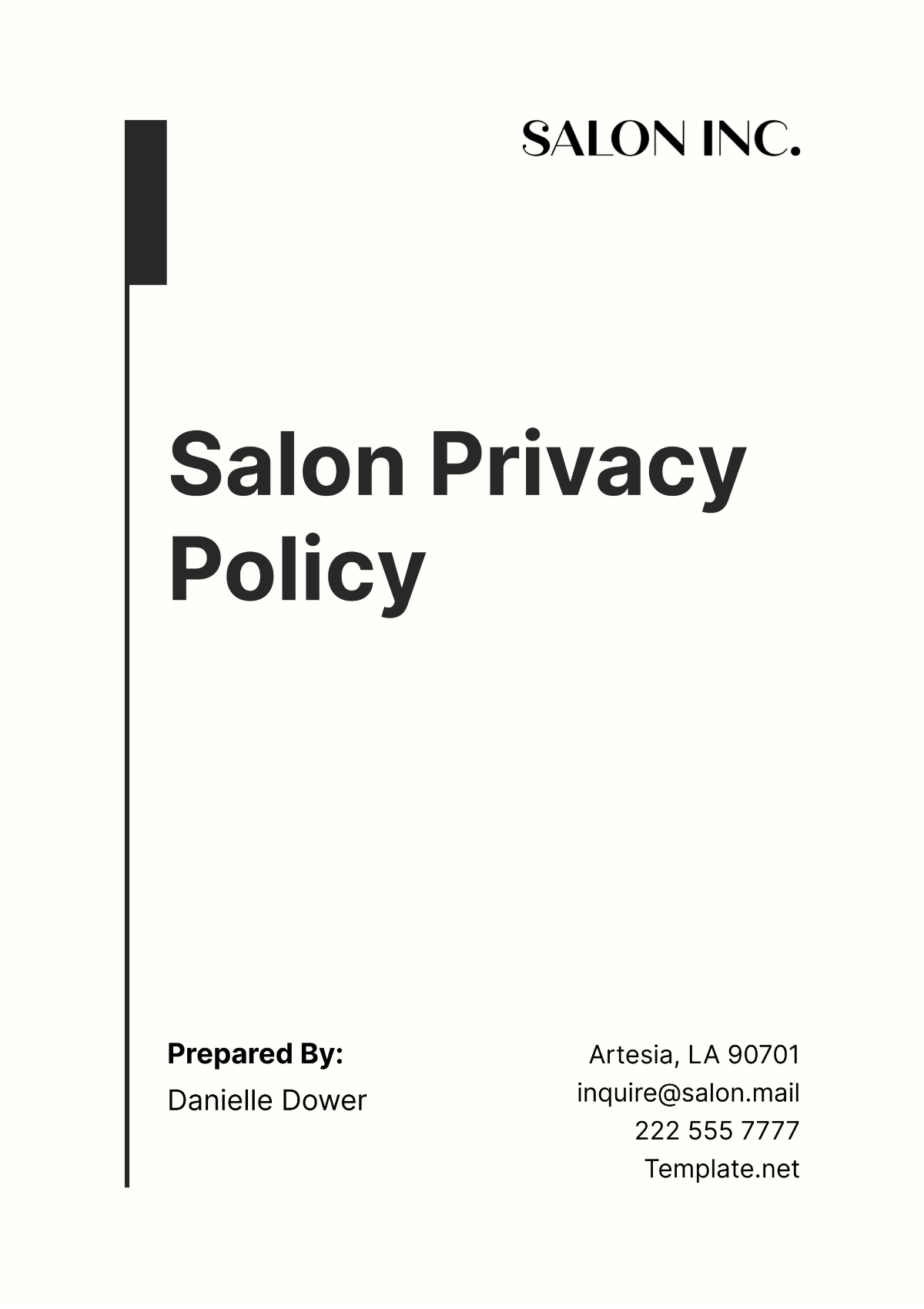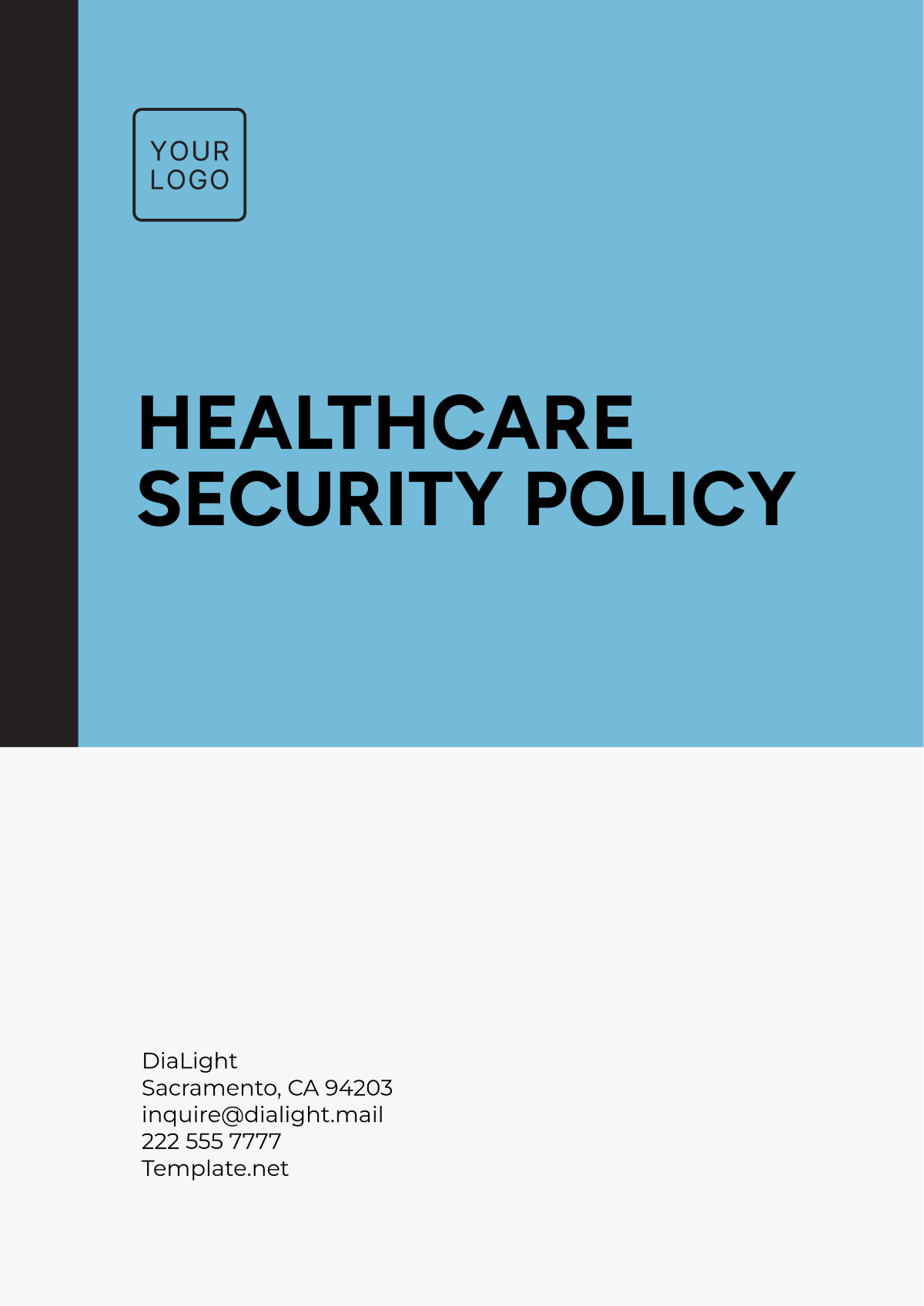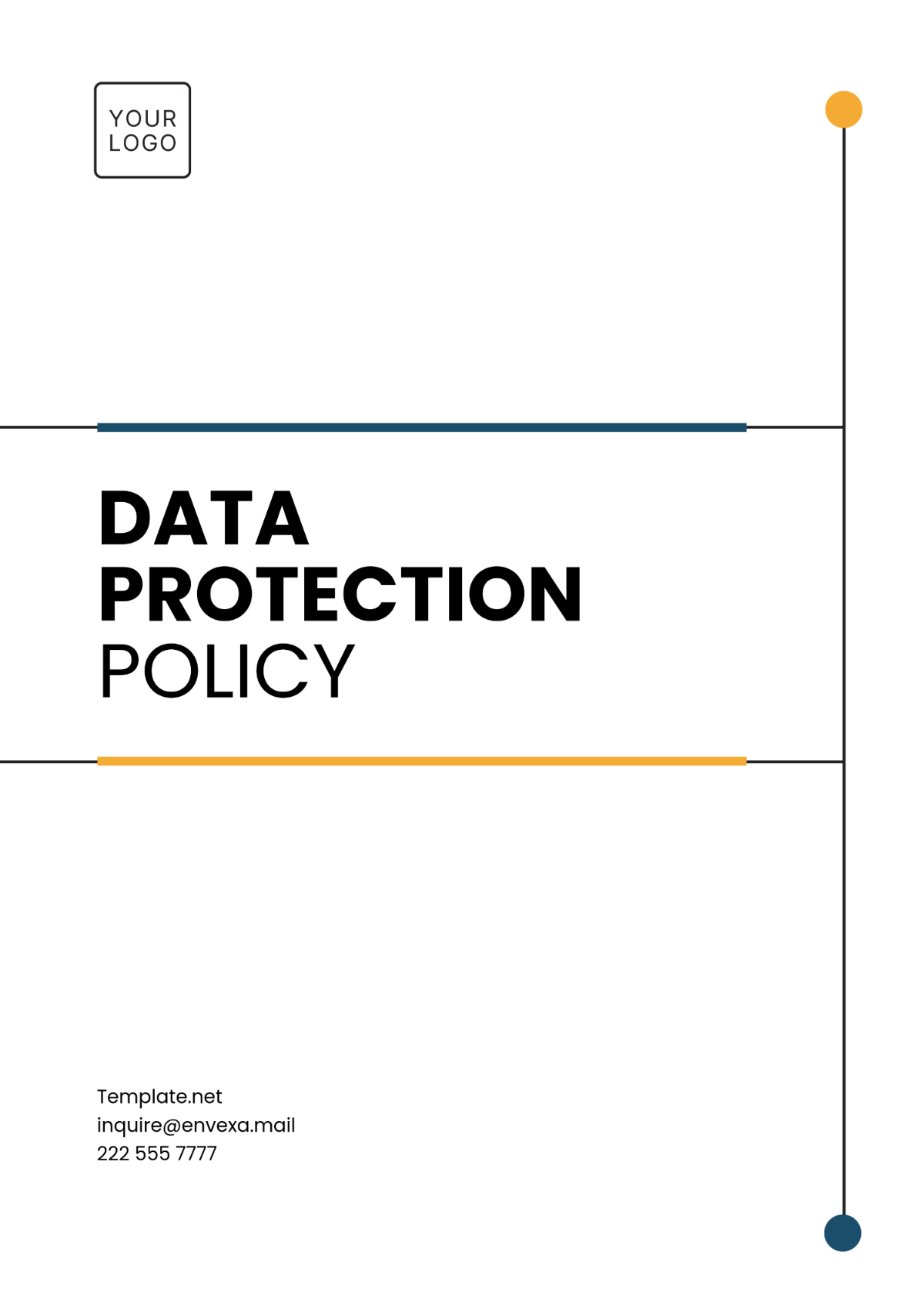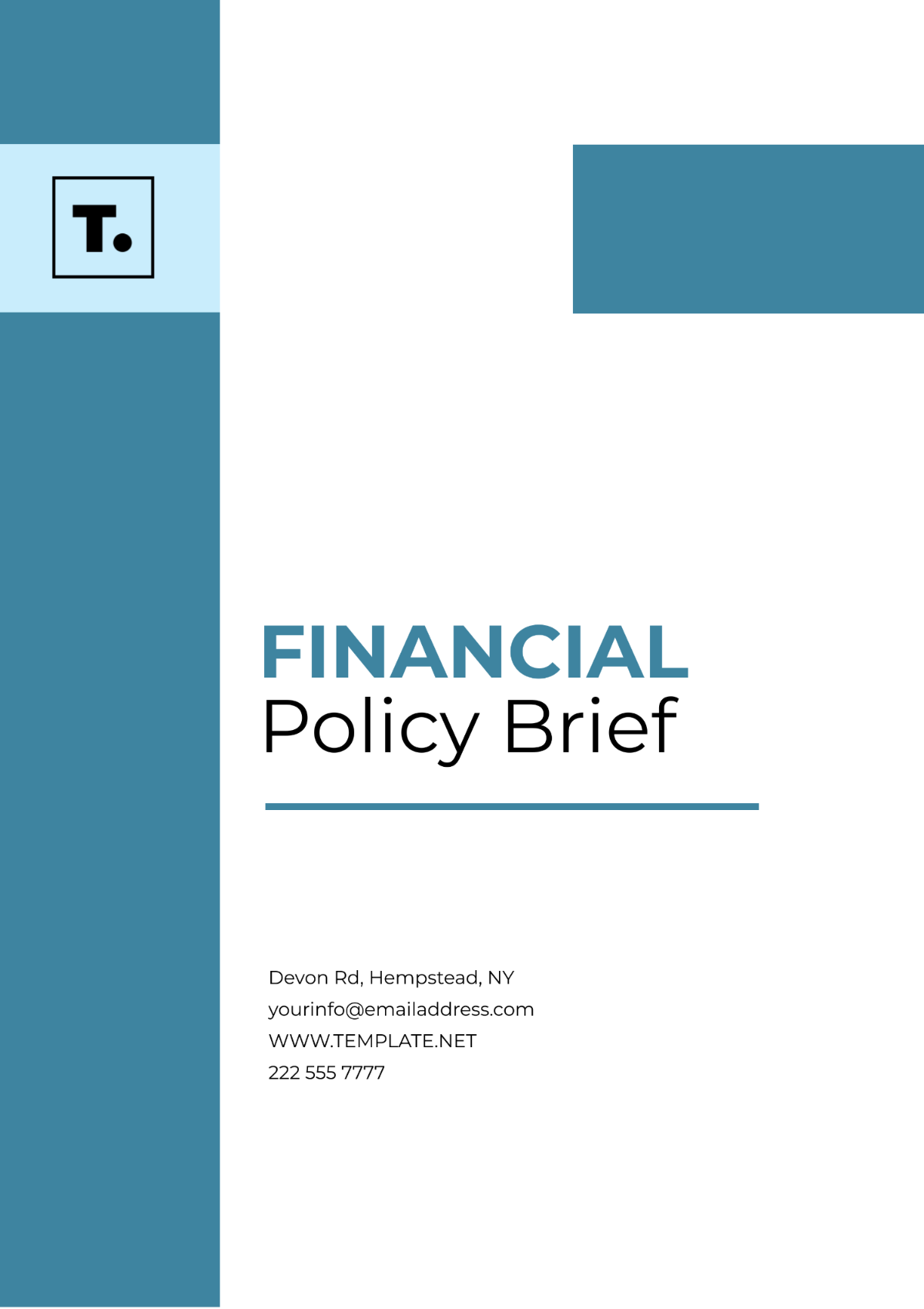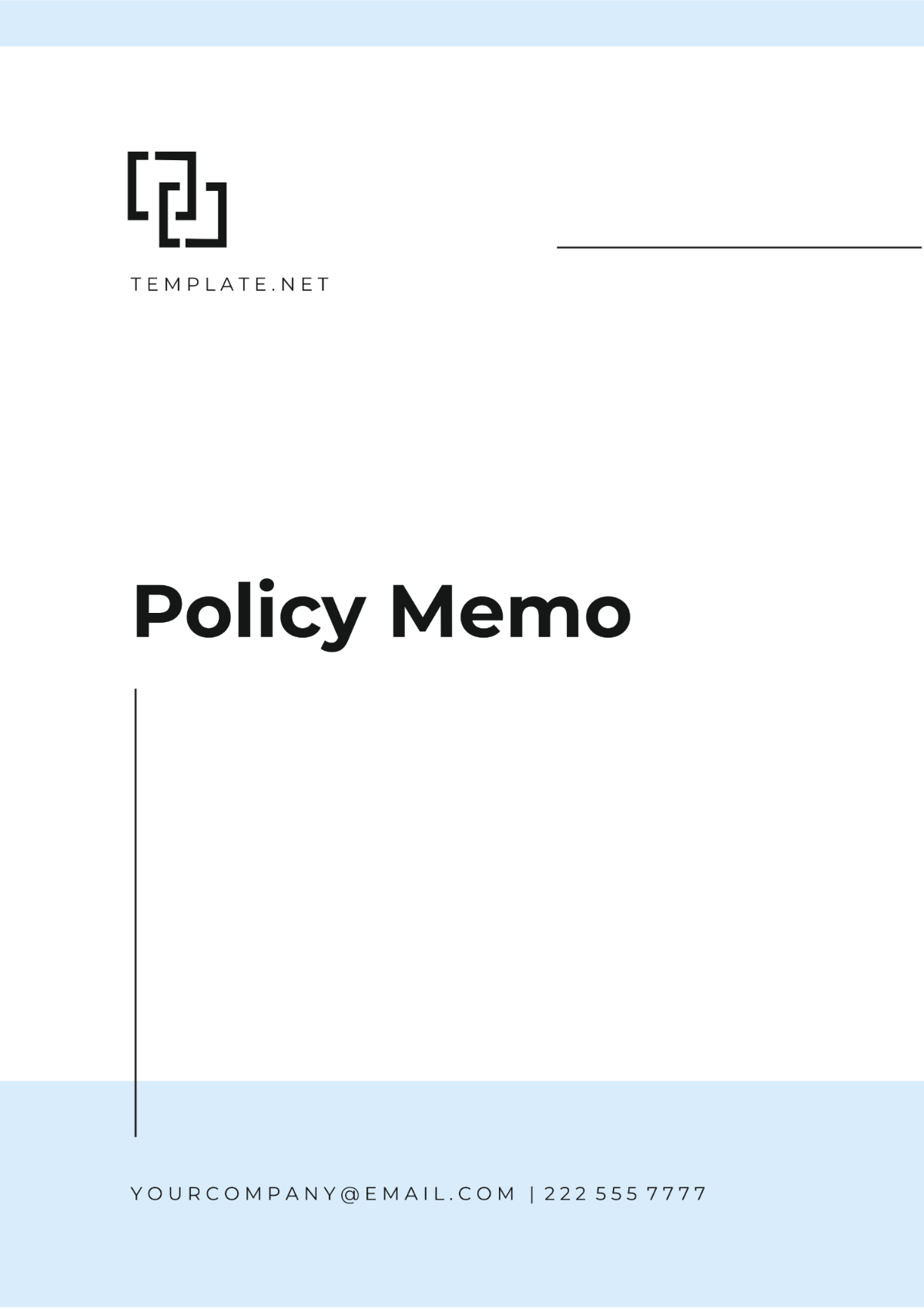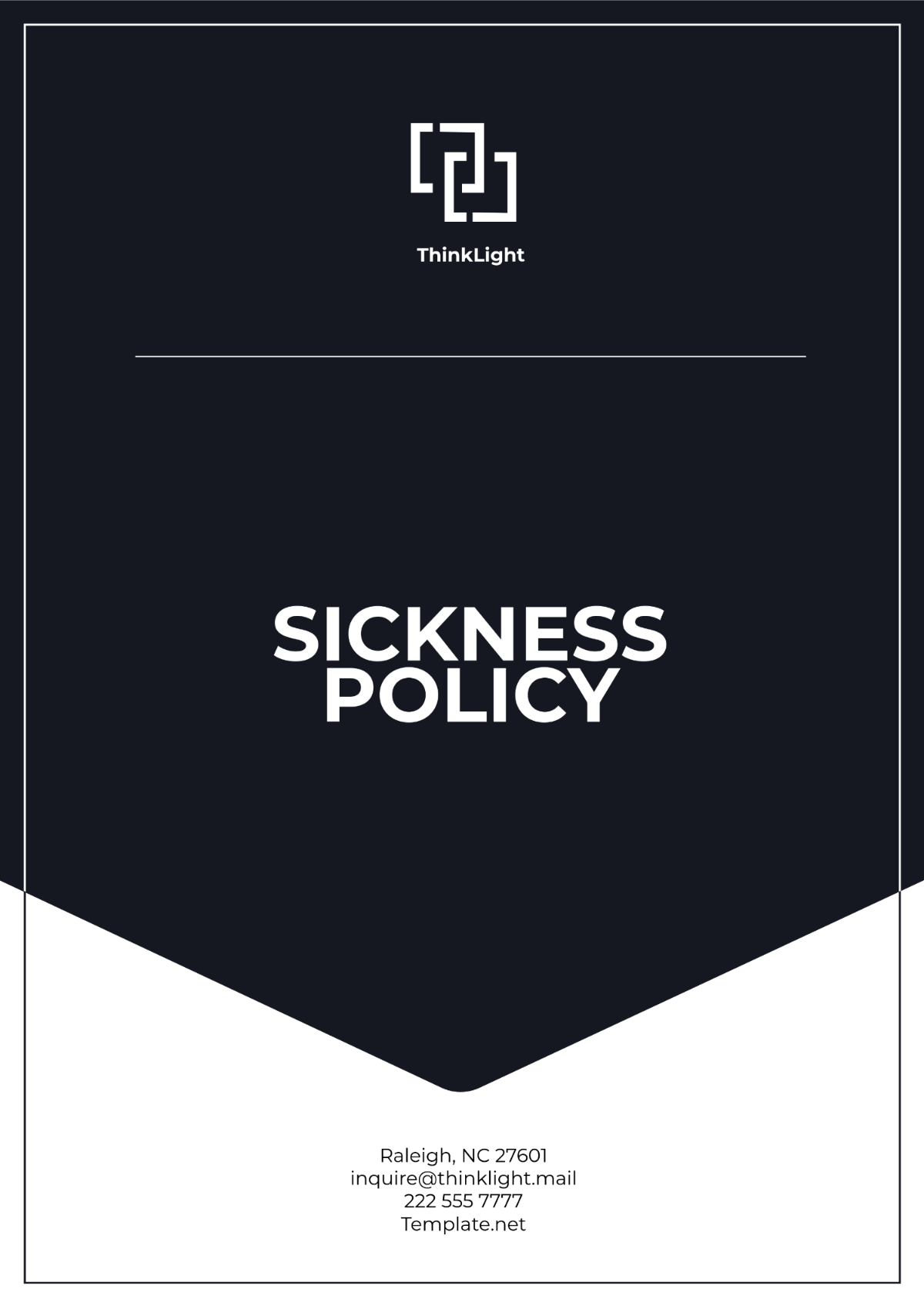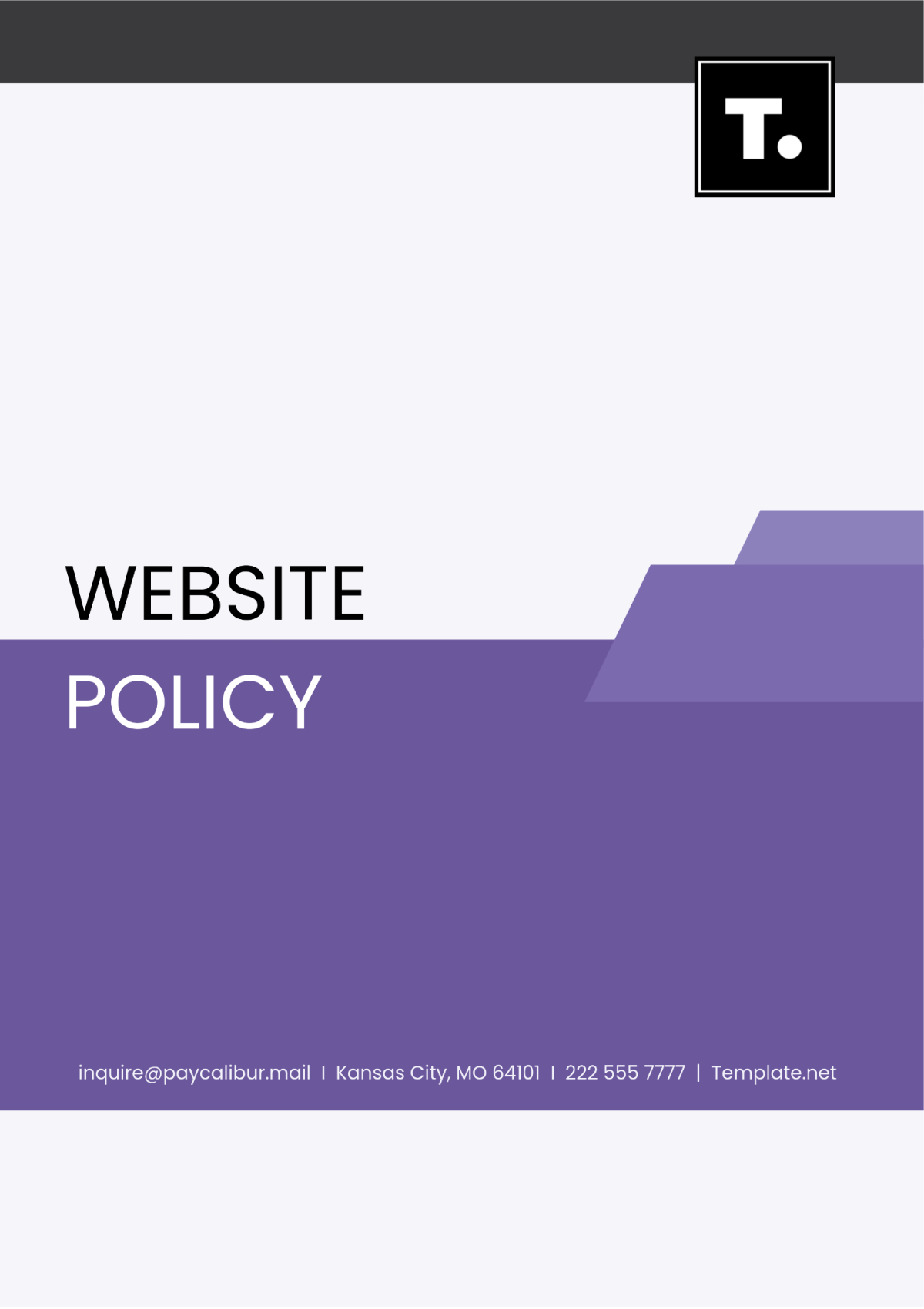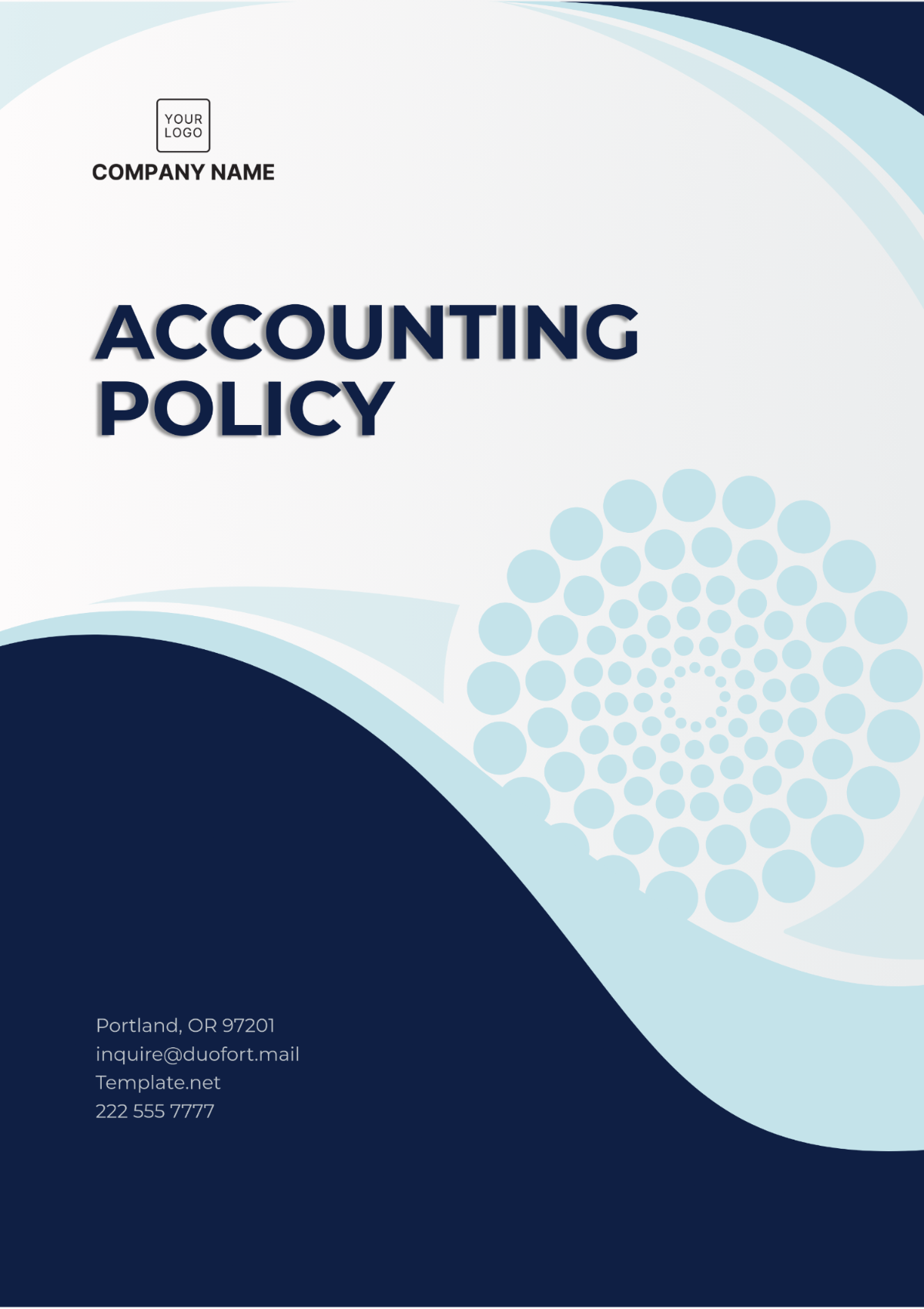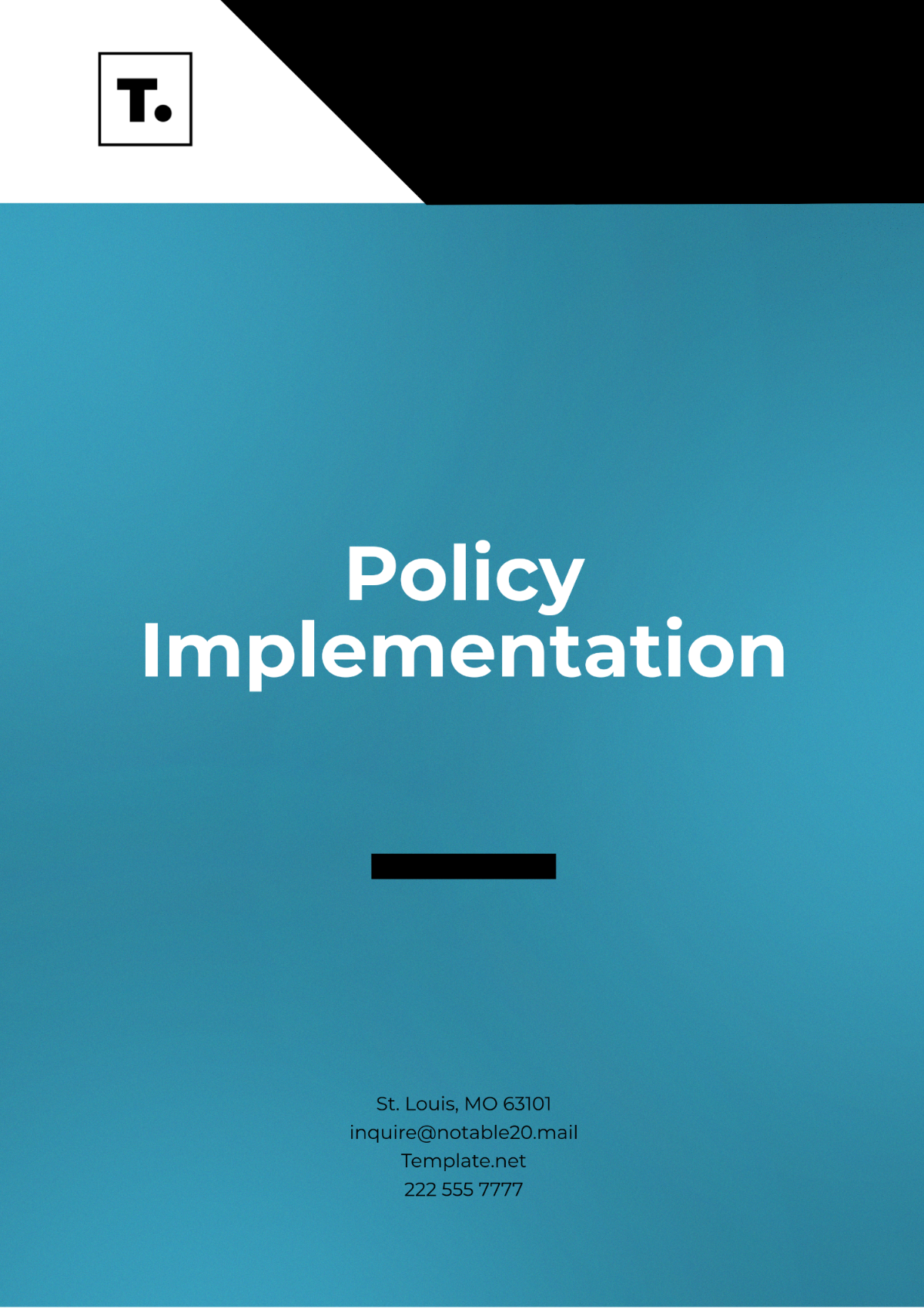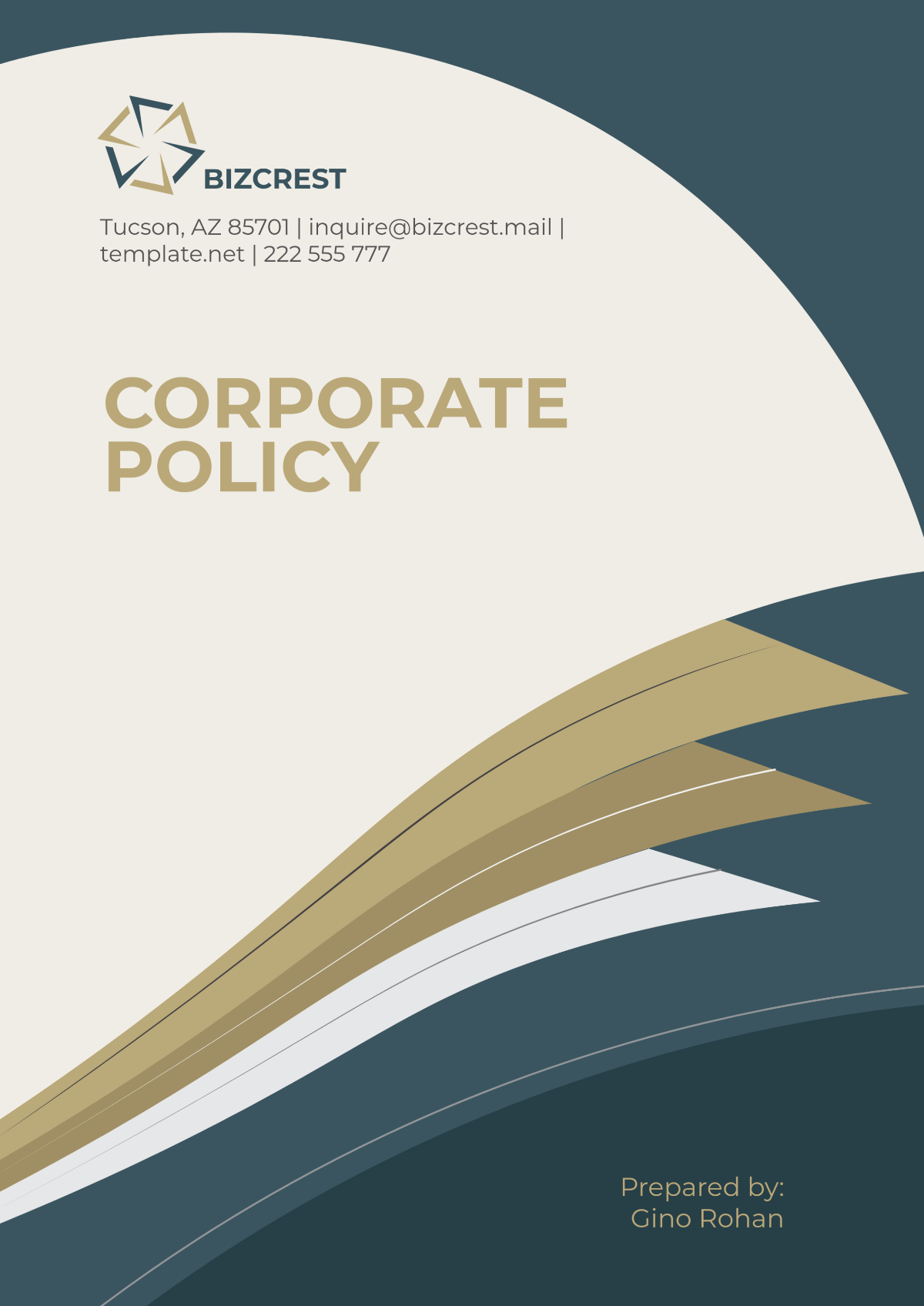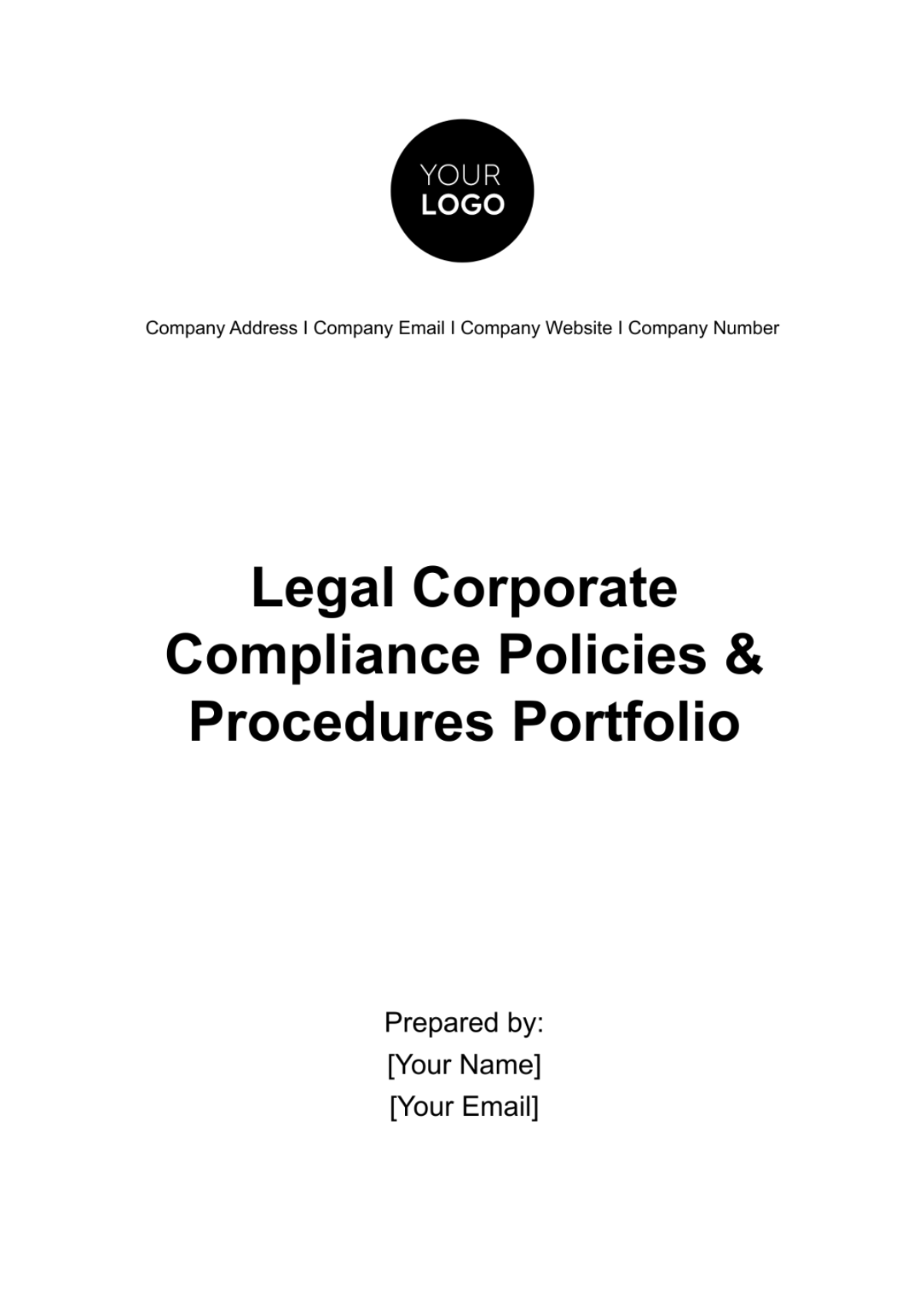Marketing Data Governance
Policy & Procedure
1. Introduction
In today's digital-driven era, data is not just numbers on a spreadsheet; it's the lifeblood that fuels strategic growth, innovation, and competitive advantage. As businesses traverse the vast landscape of the information age, the sheer volume, complexity, and potential of data become both an invaluable asset and a significant responsibility. Recognizing this, [Your Company Name] believes that the responsible stewardship of data is as crucial as its acquisition. It's not merely about collecting data but ensuring that every byte is treated with the utmost integrity, safeguarded with the highest security standards, and utilized ethically and effectively. The Marketing Data Governance Policy & Procedure serves as a testament to our unwavering commitment in this regard. This document doesn't just set guidelines—it establishes a culture, a promise that every piece of data under [Your Company Name]'s purview will be managed with respect, precision, and a clear vision of its potential. As we embark on our data-driven endeavors, this policy stands as a beacon, guiding our actions, decisions, and aspirations, ensuring that we harness the power of data not just for organizational success but also for the greater good of our stakeholders, customers, and the broader community.
2. Purpose and Scope
In the intricate tapestry of modern business, data threads its way through every department, decision, and strategy. As data continues to burgeon in volume, complexity, and significance, the need for a structured and standardized approach to its management becomes undeniably essential. The purpose of this policy goes beyond mere guidelines; it reflects [Your Company Name]'s overarching philosophy towards data stewardship. Our goal is to create an environment where every piece of marketing data is treated with the seriousness and precision it merits.
At [Your Company Name], we understand that data, if mishandled, can lead to not just operational inefficiencies but also potential reputational and legal repercussions. Hence, this policy seeks to provide a clear framework, ensuring that every stage of the data lifecycle, from its collection and storage to its use and distribution, adheres to the highest standards of quality, security, and ethics.
Furthermore, the scope of this policy is expansive, enveloping every individual and entity associated with [Your Company Name]. Whether it's our dedicated employees, our trusted vendors, or our strategic partners, everyone involved in any data-related processes is expected to uphold the tenets outlined herein, safeguarding the integrity and value of our precious data assets.
3. Data Collection Standards
In the era of information ubiquity, the way data is collected can profoundly impact an organization's reputation, operations, and legal standing. For [Your Company Name], data collection isn't merely an operational procedure but a responsibility imbued with ethical and strategic importance. Our Data Collection Standards underscore this philosophy, providing a clear framework that ensures the veracity, legality, and ethical soundness of all collected data. Dive into the granular principles that shape our approach to data collection.
Transparent Collection & Clear Consent: In an age where privacy concerns dominate public discourse, transparency stands as a pillar of trust. At [Your Company Name], every piece of data we collect is done transparently. Before any data acquisition, individuals are provided with a clear explanation of what is being collected and why. Their unequivocal consent is sought, ensuring that they are not just passive participants but informed stakeholders in the process.
Implementation: Prior to any online form submission or survey, users are presented with a clear, understandable consent form, detailing the type of data being collected and its intended use.
Collection Relevance & Precision: In the vast sea of data, not every piece of information holds value. Mindful of this, we adhere to the principle of collecting only what's necessary. Every data point collected aligns with specific, predefined marketing objectives, ensuring precision and relevance in our data acquisition processes.
Implementation: For an email marketing campaign, while an email address is vital, collecting additional personal details like age or address is avoided unless directly relevant to the campaign's objectives.
Reliable, Legal, and Ethical Sources: The integrity of data is only as good as its source. [Your Company Name] prioritizes data collection from sources that are not just reliable but also adhere to the highest legal and ethical standards. This ensures that our data foundation is solid, free from biases, inaccuracies, or any ethical quandaries.
Implementation: While purchasing third-party data lists, [Your Company Name] conducts thorough due diligence, ensuring that the data vendor follows legal protocols and ethical data collection practices.
By adhering to these Data Collection Standards, [Your Company Name] positions itself as a responsible and ethical entity, ensuring that our data-driven endeavors are both effective and principled.
4. Data Access and Distribution
Data, in its essence, is power. But like all forms of power, it demands judicious management and distribution. At [Your Company Name], we recognize that unfettered access to data can pose risks - from inadvertent data breaches to unintended misuse. Consequently, our approach to data access and distribution is both methodical and hierarchical, ensuring that data is accessible to those who need it, when they need it, and in the manner they need it, all while upholding the highest standards of security and compliance.
Role | Level of Access | Data Sets |
Marketing Manager | Full Access | All |
Marketing Analyst | Read-Only | Segmented Data Sets |
Vendors/Partners | Restricted | Specific Campaign Data |
Marketing Manager: As strategists who need a holistic view of the marketing landscape, Marketing Managers are granted full access. This ensures they have a comprehensive understanding, enabling them to make informed, strategic decisions.
Sample Scenario: A Marketing Manager planning the next quarter's strategy would require access to all data sets to gauge previous campaign performances, customer behaviors, and market trends.
Marketing Analyst: Their role demands a deep dive into specific facets of the data. Hence, they have read-only access to segmented data sets, allowing them to analyze without inadvertently altering the original data.
Sample Scenario: An analyst studying the effectiveness of a recent email campaign would access segmented data related to email open rates, click-through rates, and conversions without altering the core data sets.
Vendors/Partners: External entities are given restricted access. This ensures that they receive only the data pertinent to their specific tasks, safeguarding sensitive information.
Sample Scenario: A third-party agency running a specific PPC campaign for [Your Company Name] would only receive data relevant to that campaign's performance and target audience, without exposure to the company's broader data ecosystem.
Compliance and Agreements: In all data-sharing endeavors, compliance with data protection regulations is non-negotiable. This ensures that [Your Company Name]'s data distribution aligns with legal requirements, minimizing risks. Additionally, any external data sharing mandates a signed Data Sharing Agreement, reinforcing commitment to data protection and clearly defining usage parameters.
Sample Implementation: Before sharing campaign data with an external partner, a Data Sharing Agreement is signed, detailing data usage terms, storage guidelines, and the duration of access.
By adopting this structured approach to data access and distribution, [Your Company Name] strikes a balance between operational efficiency and data security, ensuring that our data assets are both a strategic advantage and a well-guarded treasure.
5. Data Storage and Security
In a world rife with digital threats, ensuring the safety of our data assets isn't just a technical necessity but a testament to our commitment to stakeholders. [Your Company Name] deeply understands that the data we gather, especially marketing data, isn't just bytes and bits—it represents trust, relationships, and business intelligence. Our approach to data storage and security is, thus, both rigorous and robust, designed to ensure that every piece of information under our care remains shielded from threats and accessible only to those with the right credentials.
Secure and Encrypted Storage: Modern threats necessitate modern defenses. All of [Your Company Name]'s marketing data is housed on servers that employ state-of-the-art encryption techniques. This ensures that the data, even if accessed maliciously, remains indecipherable and useless to unauthorized entities.
Sample Implementation: We utilize Advanced Encryption Standard (AES) 256-bit encryption, widely regarded as virtually impenetrable, for all our marketing data storage needs.
Regular Data Backups: The digital realm, while offering myriad advantages, also comes with its share of unpredictability. Recognizing this, we've institutionalized a rigorous backup regimen. Data backups, performed [e.g., weekly], ensure that we have redundancy mechanisms in place. Furthermore, storing backups off-site provides an added layer of security against physical threats like natural disasters.
Sample Implementation: Every Sunday, automated data backups are initiated, with the backup data stored in a geographically distant, secure data center.
Emergency Response to Data Breaches: Even with the best of defenses, preparedness for the unforeseen is crucial. In the unlikely event of a data breach, [Your Company Name] has a predefined emergency response plan at the ready. This plan outlines immediate actions, from isolating affected systems to notifying stakeholders, ensuring swift containment and mitigation of potential damages.
Sample Scenario: Upon detecting unusual server access patterns, our IT team is immediately alerted. Concurrently, potentially affected systems are isolated, a thorough investigation is initiated, and relevant stakeholders, including potentially affected customers, are informed as per regulatory guidelines.
6. Data Quality and Integrity
In the data-driven world of modern business, the phrase "Garbage In, Garbage Out" has never been more relevant. The value and impact of data-driven decisions are directly contingent on the quality of the data at hand. [Your Company Name] acknowledges that while amassing vast quantities of data is an achievement, ensuring its accuracy, consistency, and reliability is an ongoing responsibility. Our approach to maintaining data quality and integrity is multi-faceted, ensuring that our data assets remain pristine and our decisions grounded in truth.
Scheduled Data Cleaning: Over time, any database can become cluttered with outdated, redundant, or erroneous entries. Recognizing this, we have instituted regular data cleaning sessions. These sessions meticulously comb through our datasets, updating outdated information, removing redundancies, and rectifying errors. This proactive approach ensures that our data remains current, accurate, and optimized.
Sample Implementation: Every quarter, our data management team uses advanced software tools to identify and clean duplicate entries, outdated records, and any inconsistencies in our marketing database.
Rigorous Quality Checks on Data Imports/Exports: As data flows in and out of [Your Company Name], maintaining its quality is of paramount importance. Every data import or export undergoes a stringent quality check, ensuring that incoming data aligns with our standards and outgoing data remains consistent and accurate.
Sample Scenario: Before integrating a new set of customer data from a recent campaign into our main database, the dataset undergoes checks for format consistency, missing values, and potential anomalies.
Prompt Addressing of Discrepancies and Anomalies: In the realm of data, anomalies and discrepancies aren't just errors; they're potential indicators of deeper issues, from system glitches to unauthorized access. At [Your Company Name], any identified discrepancies are not just rectified but thoroughly investigated. This swift and comprehensive response ensures that the root causes are identified and addressed, preventing recurrence.
Sample Implementation: If an unusual spike in website traffic is detected, our team not only verifies the data but delves deeper to ascertain the cause—be it a successful marketing campaign, a referenced mention in a popular forum, or a potential bot attack.
By upholding these practices, [Your Company Name] ensures that our data remains a reliable foundation for our strategies, decisions, and initiatives. We believe that in the pursuit of data-driven excellence, quality and integrity are not just desirable—they're indispensable.
7. Compliance and Regulatory Adherence
Navigating the complex labyrinth of data-related regulations is no mere logistical challenge; it's a testament to a company's commitment to ethical operations and respect for individual privacy. At [Your Company Name], we firmly believe that our responsibilities extend beyond business objectives, encompassing the safeguarding of individual rights and ensuring the ethical handling of all data. Our approach to compliance and regulatory adherence is holistic, rigorous, and unwavering, positioning us as a beacon of trust in the digital realm.
Adherence to Local and International Regulations: As we operate in a globalized world, [Your Company Name] recognizes the importance of adhering to both local and international data protection standards. Whether it's GDPR for European operations or CCPA for California-based interactions, our commitment to compliance is both broad and deep. Regular training sessions ensure that our team stays updated on the ever-evolving landscape of data regulations.
Sample Implementation: Before launching a new international marketing campaign, our legal team conducts a comprehensive review, ensuring alignment with the specific data protection regulations of the targeted region.
Clear Opt-in/Opt-out Mechanisms in Marketing Campaigns: Trust is built on transparency and choice. All of [Your Company Name]'s marketing campaigns honor this principle by providing recipients with clear mechanisms to either opt-in or opt-out of communications. This ensures that our interactions are consensual, building a foundation of mutual respect and trust with our audience.
Sample Scenario: In our email marketing campaigns, every email footer contains clearly visible "Subscribe" and "Unsubscribe" links, allowing recipients to easily choose the nature and frequency of their interactions with us.
Anonymization and Pseudonymization of Personal Data: In the age of privacy concerns, protecting personal data is paramount. Whenever possible, [Your Company Name] employs techniques like anonymization and pseudonymization. This ensures that the individual identities tied to data are either entirely removed or replaced with pseudonyms, rendering the data useless for malicious entities while preserving its analytical value for us.
Sample Implementation: For a post-campaign analysis, rather than storing specific user details, we might store data under pseudonyms or codes. While we can still analyze behavior patterns and campaign efficacy, the actual identities of the individuals remain protected.
[Your Company Name]'s commitment to compliance and regulatory adherence isn't just about avoiding legal repercussions—it's about embodying our core values, building trust, and ensuring that our operations reflect the highest standards of integrity and respect.
8. Review and Audits
In the ever-evolving landscape of data management and digital operations, resting on laurels is not an option. Regular oversight, in the form of reviews and audits, ensures that the practices and systems in place remain not just compliant but also optimized for the current environment. At [Your Company Name], we recognize that audits aren't merely about ticking boxes but are instrumental in driving continuous improvement, fostering transparency, and reinforcing trust with our stakeholders. Dive into our structured approach towards regular review and audits, ensuring that our data management stands up to scrutiny and remains a benchmark for excellence.
Annual Internal Audits: Internal audits act as a self-check mechanism, allowing [Your Company Name] to evaluate its data management processes against set benchmarks and identify areas for improvement. Conducted annually, these audits are rigorous, comprehensive, and aim to ensure that our internal practices, systems, and data-handling mechanisms are not only compliant but also optimized for efficiency and security.
Sample Implementation: A dedicated internal audit team, every year, assesses our databases, data processing systems, and security mechanisms. Their findings are documented and used as a foundation for continuous improvement initiatives.
Biennial External Audits by [Auditing Firm Placeholder]: An external perspective often brings insights and nuances that internal reviews might overlook. Every [e.g., two years], [Your Company Name] collaborates with [Auditing Firm Placeholder], an acclaimed external agency, to conduct a thorough review of our data governance practices. This collaboration ensures unbiased feedback, benchmarking our practices against industry standards.
Sample Scenario: Post an external audit by [Auditing Firm Placeholder], we receive a comprehensive report highlighting our strengths, potential vulnerabilities, and areas for enhancement. This external perspective is invaluable in shaping our forward strategy.
Review and Address by the Data Governance Committee: While audits bring insights to the forefront, taking actionable measures based on these findings is where the real value lies. At [Your Company Name], the Data Governance Committee plays a pivotal role in this aspect. This committee, comprising cross-functional leaders, meticulously reviews audit findings, prioritizes actions, and ensures timely implementation of recommended changes.
Sample Implementation: Following an audit, the Data Governance Committee convenes for a series of meetings. Here, they dissect the audit report, formulate an action plan, allocate responsibilities, and set timelines to ensure swift and efficient addressing of highlighted issues.
By fostering a culture of regular review and audits, [Your Company Name] ensures that our data governance remains a living, evolving entity, continually refined to meet the challenges of the digital age and uphold our commitment to excellence and integrity.
9. Roles and Responsibilities
Effective data governance isn't merely the product of stringent policies or advanced tools—it's fundamentally anchored in people. At [Your Company Name], we believe in clearly delineating roles and responsibilities, ensuring that every stakeholder knows their duties and is empowered to execute them effectively. This chapter delves into the key roles within our organization that are instrumental in upholding our data governance standards and ensuring the seamless functioning of our data-driven operations.
Data Governance Committee: Serving as the bedrock of our data governance framework, the Data Governance Committee is a cross-functional team comprising experts from various domains. Their primary responsibility is to provide strategic direction, ensuring that our data governance policy remains current, relevant, and effective in the face of evolving challenges and opportunities.
Sample Implementation: The Data Governance Committee convenes quarterly to review the policy's effectiveness, discuss potential challenges, and strategize on any required modifications. They also play a pivotal role in reviewing audit findings and formulating responsive action plans.
Data Protection Officer (DPO): As the guardian of data compliance, the DPO plays a crucial role in ensuring that [Your Company Name] adheres to local and international data protection regulations. Their deep understanding of regulatory landscapes, combined with a proactive approach, ensures that our data operations remain compliant and that any potential legal issues are promptly addressed.
Sample Scenario: Ahead of a new marketing initiative, the DPO reviews the campaign's data collection methods, ensuring they align with GDPR and other pertinent regulations, and provides recommendations if any modifications are needed.
Marketing Manager: Positioned at the frontline of our data-driven marketing operations, the Marketing Manager is the custodian of practical policy adherence. Their primary duty is to ensure that the entire marketing team operates in alignment with the governance policy, fostering a culture of data responsibility and ensuring that everyday operations reflect our governance principles.
Sample Implementation: When rolling out a new campaign, the Marketing Manager conducts a briefing session for the team, emphasizing the importance of data governance, highlighting specific policy aspects relevant to the campaign, and addressing any queries to ensure complete clarity and compliance.
Each of these roles, while distinct in their responsibilities, collectively forms the backbone of [Your Company Name]'s data governance ecosystem. Through their combined efforts, expertise, and commitment, we ensure that our data operations are not just efficient and innovative, but also ethical, compliant, and in alignment with our core values.
10. Revision and Updates
In the dynamic terrain of the digital era, stagnation is not an option, especially when it comes to data governance. Regulations evolve, technologies advance, and best practices transform. Recognizing this fluidity, [Your Company Name]'s approach to our Data Governance Policy is not set in stone but designed to be adaptable and responsive. The chapter on "Revision and Updates" underscores our commitment to ensuring that our policy remains both current and forward-thinking, reflecting the latest in regulatory guidelines, industry standards, and organizational learnings. Through regular reviews and proactive updates, we strive to ensure that our data governance framework remains a beacon of excellence, trust, and adaptability in an ever-changing world.
This policy will be reviewed and updated every [e.g., two years] or in response to significant regulatory changes.
All stakeholders will be informed of any updates.
_____________________________________________________________________________________
© 2050 [Your Company Name]. All rights reserved.
